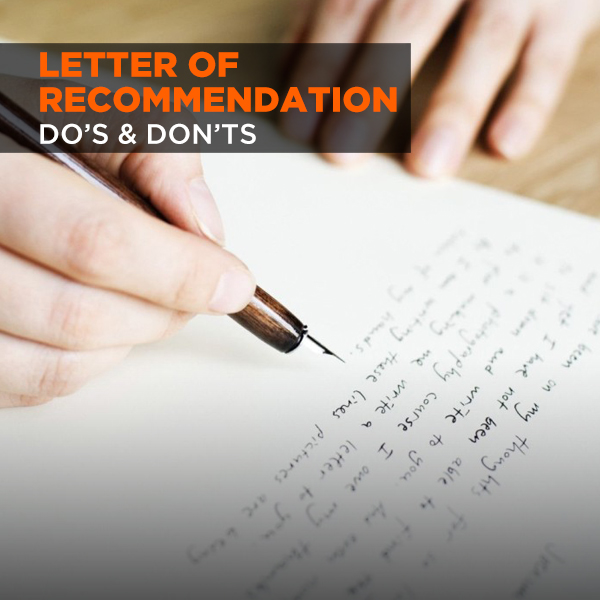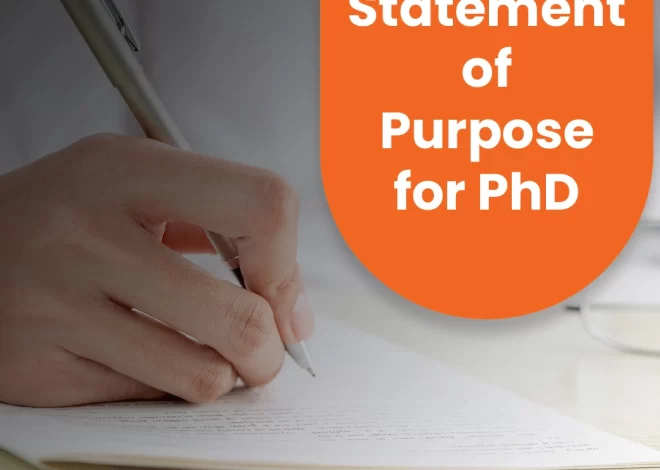
Letter of Recommendation-Do’s & Don’ts

An engaging reference letter can help a candidate achieve a career or academic goal. When an acquaintance asks you to recommend them for a role, it may be helpful to highlight their credentials and explain your experiences working with them. Learning how to approach the writing process for a reference letter can help you format the document, include specific, relevant discussions and meet the organisation’s deadlines. In this article, we explore the purpose of a reference letter and list the do’s and don’ts of creating your own.
Do’s of asking for letters of recommendation
When asking for letters of recommendation for an academic program, internship or job, it’s important to follow some guidelines to ensure you receive quality recommendations
1. Choose your recommenders carefully
Depending on the type of application, you may be asking multiple people for letters of recommendation. When considering who to ask for a recommendation, think about people who are familiar with your character, work ethic and potential. Ask people who know you well enough to write you a strong recommendation based on your unique traits and specific achievements. For example, you may choose to ask for a letter from a faculty adviser who helped you complete a research project during the semester. Choosing your recommenders carefully can help ensure you submit letters that are detailed and authentic.
2. Request a letter formally
If possible, ask someone to write you a letter of recommendation in person. This formal request shows you acknowledge the significance of asking for a recommendation and creates a positive impression on the person you’re asking. If you’re unable to ask them in person, make your request by calling them on the phone or writing a professional email.
When writing an email, include a formal greeting, a paragraph about why you’re asking for a recommendation and relevant information about the application, such as the due date. Proofread your to ensure there are no spelling or grammar errors.
3. Ask early
It takes time for a teacher or employer to write a recommendation, so ask them early to give them as much notice as possible. When applying for academic programs, try to ask people for recommendations four to six weeks before the application deadline. While you may have less time to secure recommendations for a job application, it’s still important to ask your references early so they can write you a quality letter. It’s helpful to give your references an earlier deadline than the application due date to account for processing times or delays.
4. Provide information
When you ask someone to write you a letter of recommendation, make sure you provide them with information about the job or program to which you’re applying. This information can help them understand what type of information to include in their letter. For example, if you’re applying for a management position, this information can help your references know to write about your leadership skills. In addition to information about the job or program, provide other details that may be helpful, such as a copy of your resume or a transcript showing the grade you received in a professor’s class.
5. Outline your skills and achievements
After someone agrees to write you a recommendation, send them an outline with some information you’d like them to highlight in their letter. Make a bulleted list of your achievements or attributes to help them determine what to include in their recommendation.
You may provide them with information about the classes you’ve taken, the work projects you’ve completed, any awards you’ve won or the adjectives you might use to describe yourself. This outline can help your references write detailed, impactful letters that can help distinguish you from other applicants.
6. Keep copies of letters
After you receive your letters of recommendation, make copies and store them in a place where you can access them again later. This step ensures you can provide another copy of a letter if it gets lost or misplaced during the application process. If you decide to apply for a similar job or academic program, you may also want to use the same letter of recommendation for that application. In this case, ask your reference for permission before you use their letter for another application.
7. Be gracious
Whenever you ask someone to write you a letter of recommendation, show respect for their time by being gracious. Remember to say please and thank you when you ask for a letter. If someone declines to write you a letter, thank them for their time and consideration. Being gracious conveys professionalism and shows the person you’re asking that you take the request seriously. While employers and teachers may receive many requests for letters of recommendation, they’re likely to remember those who ask graciously, which may reflect in their recommendations.
Don’ts of asking for letters of recommendation
Understanding some actions to avoid when asking for a letter of recommendation can help you show professionalism while making these requests.
1. Use a reference without their permission
Before using someone as a reference on an application, make sure you ask them first. This step is a professional courtesy that shows the person you have respect for them. Tell the person why you’re asking them for a recommendation and ask if they feel comfortable writing you a letter. Make your request at a time that’s convenient for them, such as during a professor’s office hours. Using someone as a reference requires you to ask for their permission to make sure they consent to vouching for your skills and abilities.
2. Get upset if someone says no
If someone declines your request to write you a letter of recommendation, politely thank them for their time and consideration. Refrain from getting upset if someone says no to your request. Instead, think about another person who you can ask for a recommendation.
Another reference can help you strengthen your application because they may have more time to write an effective letter or be more likely to write you a positive recommendation.
When someone declines your request, view it as an opportunity to improve your application with a stronger reference.
3. Be vague about details
When you ask someone for a recommendation, be clear about the details of the letter to make sure they meet the necessary requirements for the application. Communicate with your reference about the due date for the letter so they have plenty of time to write their recommendation. If the employer or school prefers to receive the letter in a specific format, such as a hard copy or PDF, let your reference know that information so they can prepare their letter accordingly. If it’s necessary to mail the letter, provide your reference with an addressed envelope and a stamp.
4. Provide false information
Make sure you only share information with your references that’s true and accurate. While you want a letter of recommendation to reflect positively on you, it’s more important for these recommendations to showcase your true strengths and abilities. A letter of recommendation can help show a school or employer why you’d be a good fit for their program or organization. If you choose references who know you well, they can speak about your character, achievements and qualifications in a positive and authentic way.
5. Write a letter for them
While it’s helpful to tell your references what you'd like them to include or highlight in their letters, refrain from telling them exactly what to write. Most employers and teachers have written these letters before and understand how to write an effective recommendation, so trust them to prepare their own letters. Choose to ask for recommendations from people who are familiar with your accomplishments and unique skills. The right references are likely to write you a letter of recommendation that conveys their belief in your future potential, which can help set you apart from other candidates.
6. Hesitate to ask for more letters
Consider asking for more letters of recommendation than required for the application. For example, if you’re required to submit three letters, you may ask five references to write recommendations for you. Having additional letters can be helpful if one of your references is unable to finish their recommendation by the deadline. When you have additional letters, you can also choose to submit the ones that showcase your skills and abilities most positively. Regardless of which letters you decide to submit, thank each of your references for their time to show your appreciation.
7. Forget to say thank you
Once you’ve submitted your application, make sure to thank everyone who wrote you a letter. It’s polite to show your appreciation by sending a handwritten note or an email. In your message, express your gratitude for the time it took them to write you a personal recommendation. It's also courteous to let your references know the results of your application once you receive them. If you were successful in getting the job or gaining acceptance into an academic program, your references may be happy to know could help with your application.



